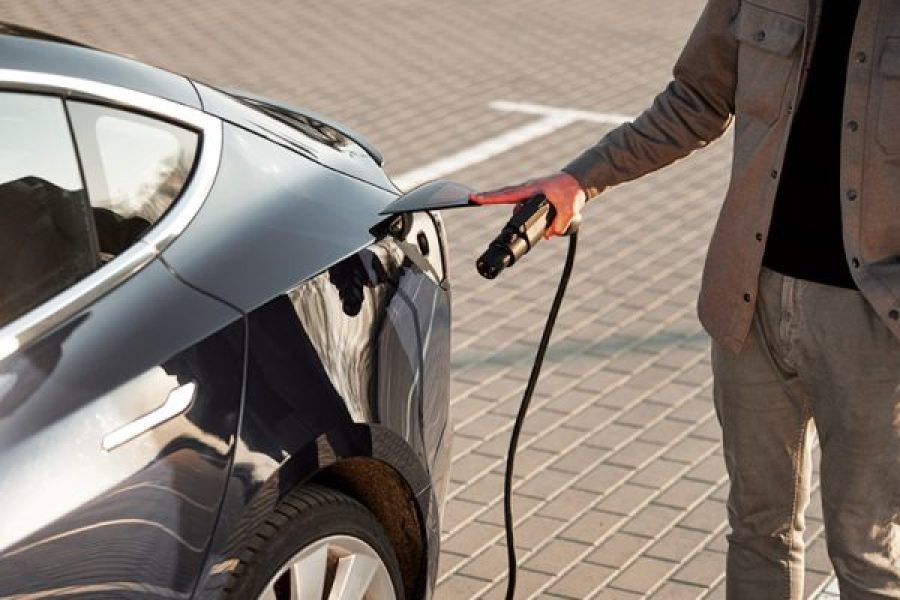New Zealand is uniquely positioned to become a global leader in electric vehicle (EV) adoption, thanks to its abundant renewable energy resources and a progressive stance on sustainability. However, the journey to widespread EV adoption is not without challenges. This article will delve into why New Zealand should lead in EV adoption, backed by expert insights and data-driven analysis, while providing a roadmap for property developers and policymakers to capitalize on this opportunity.
🌟 New Zealand's Renewable Energy Advantage
Did you know that New Zealand generates over 80% of its electricity from renewable sources? According to the Ministry of Business, Innovation and Employment (MBIE), this positions the nation as an ideal candidate for EV adoption. The abundant clean energy supply means that EVs can be charged with minimal environmental impact, reinforcing New Zealand's commitment to reducing carbon emissions.
For property developers, this presents a unique opportunity to integrate EV infrastructure into new projects. By installing charging stations in residential and commercial developments, developers can attract eco-conscious buyers and tenants, adding value to their properties.
🔍 Real-World Case Study: Vector Limited
Case Study: Vector Limited – Leading the Charge in EV Infrastructure
Problem: Vector Limited, a leading energy company in New Zealand, faced the challenge of meeting the growing demand for EV charging infrastructure in Auckland. Without adequate charging facilities, EV adoption was at risk of stalling.
Action: Vector Limited took proactive steps by installing over 40 public charging stations across Auckland. They leveraged smart technology to ensure these stations were efficient and user-friendly.
Result: Within two years, Vector Limited saw a 50% increase in EV usage among Auckland residents, as well as a 30% rise in customer satisfaction with their energy services.
Takeaway: This case study underscores the importance of building robust EV infrastructure to support adoption. Property developers can draw inspiration from Vector's success by integrating charging solutions into their projects, catering to the growing demand for sustainable living options.
🔄 Pros and Cons of EV Adoption in New Zealand
✅ Pros:
- Environmental Benefits: EVs produce zero tailpipe emissions, contributing to cleaner air and a healthier environment.
- Economic Growth: The EV industry can create new jobs in manufacturing, maintenance, and charging infrastructure.
- Cost Savings: EVs are cheaper to run than conventional vehicles, offering savings on fuel and maintenance.
- Energy Independence: By reducing reliance on imported oil, New Zealand can enhance its energy security.
- Technological Innovation: The shift to EVs can drive advancements in battery technology and smart grid solutions.
❌ Cons:
- High Initial Costs: EVs and charging infrastructure require significant upfront investment.
- Range Anxiety: Limited charging infrastructure can deter potential buyers concerned about long-distance travel.
- Battery Disposal: Proper recycling and disposal of EV batteries remain a challenge.
- Grid Impact: Increased EV charging can strain the electricity grid if not managed effectively.
🔍 Balancing Perspectives: The EV Debate
While EV advocates highlight the environmental and economic benefits, critics voice concerns over the initial costs and infrastructure challenges. However, a middle ground exists: phased investments in EV infrastructure and government incentives can alleviate financial burdens while promoting adoption.
For instance, the New Zealand government has introduced the Clean Car Discount, providing rebates for purchasing low-emission vehicles. This policy can be complemented by property developers partnering with energy companies to install charging stations, further easing the transition to EVs.
🚗 Addressing Common Myths About EVs
- Myth: "EVs are too expensive for the average consumer." Reality: While the upfront cost is higher, long-term savings on fuel and maintenance make EVs more affordable over time (Source: Stats NZ).
- Myth: "EVs can't handle long distances." Reality: Advances in battery technology have extended the range of many EVs, making them suitable for longer journeys (Source: Consumer NZ).
- Myth: "Charging an EV takes too long." Reality: Fast-charging stations can replenish an EV battery to 80% in 30 minutes, making charging more convenient (Source: MBIE).
🔮 Future Trends and Predictions
According to a report by Deloitte, the global EV market is expected to grow by 29% annually, reaching 31 million units by 2030. In New Zealand, this trend could translate to 40% of new car sales being electric by 2028, driven by supportive government policies and increasing consumer awareness.
For property developers, this means integrating EV infrastructure into projects is not just a competitive advantage but a necessity. As more consumers prioritize sustainability, developments equipped with charging solutions will be more attractive and command higher market value.
🔍 People Also Ask (FAQ)
- How does EV adoption impact businesses in New Zealand? EV adoption offers businesses opportunities to innovate and expand into new markets, with potential cost savings and enhanced brand reputation.
- What are the biggest misconceptions about EVs? Many believe EVs are too costly and inconvenient, but data shows long-term savings and improved charging infrastructure debunk these myths.
- Who benefits the most from EV adoption? EV adoption benefits consumers with lower running costs, businesses with new market opportunities, and the environment through reduced emissions.
🚀 Conclusion: The Road Ahead for New Zealand
New Zealand stands at the forefront of a global shift towards electric vehicles. With its renewable energy resources and supportive government policies, the country is well-positioned to lead this transition. For property developers, integrating EV infrastructure into their projects is a strategic move that aligns with consumer demand and sustainability goals.
Are you ready to embrace the electric future? By investing in EV infrastructure today, you can contribute to a cleaner, greener New Zealand while enhancing the value of your developments. Share your thoughts or experiences with EVs in the comments below!
🔍 Related Search Queries
- Electric vehicle adoption in New Zealand
- Benefits of electric cars for Kiwi businesses
- EV charging infrastructure in Auckland
- New Zealand clean car policies
- Renewable energy and EVs in New Zealand

































Taxi Brussels
8 months ago